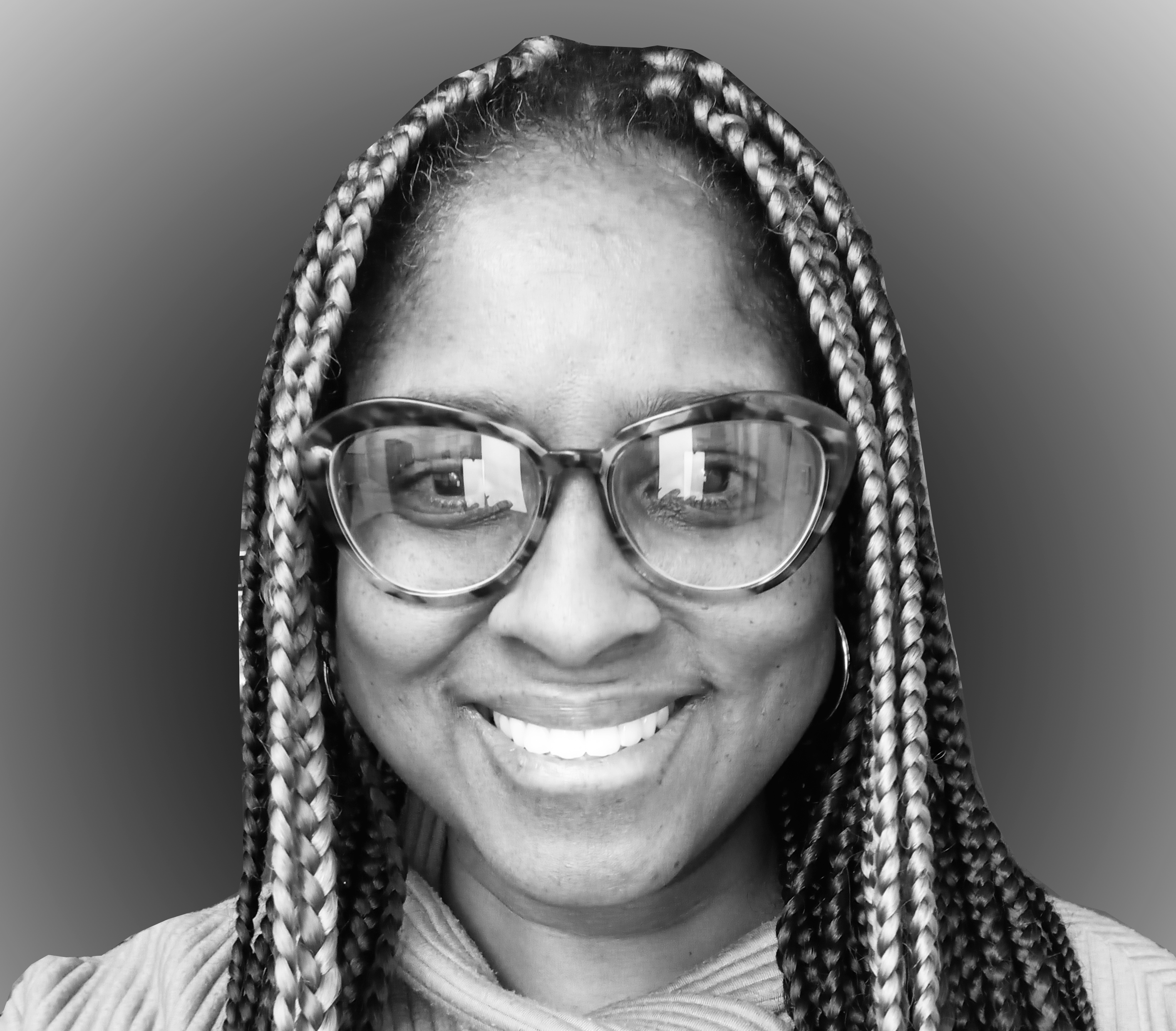Building the Black Farmers Index with NYU Professor Kaia Shivers
- 0.5
- 1
- 1.25
- 1.5
- 1.75
- 2
Samantha Smitte: Welcome to the Business School Podcast, where you will learn how the world of business is being redefined. My name's Samantha Smitte and I'm a Data and AI Leader at IBM. Today, I'm thrilled to be joined by acclaimed journalist, activist, academic leader and founder of the Black Farmers Index, Kaia Shivers. Kaia, thank you so much for joining us. Can you tell us about your background and your journey that led you to where you are today?
Kaia Shivers: I would like to thank you for having me. This is really exciting. A lot of you, well, everybody on the call may not know that Samantha was my student.
Samantha Smitte: Yes. I almost added, and my favorite professor from undergrad, but I figured not everyone cares. But absolutely.
Kaia Shivers: Thank you. I appreciate that. So I would just like to say this is a full circle moment and I'm very appreciative to be on talk about my journey. Just very briefly, I'm just going to just talk about the journalism journey. And I think this is very important and it tells a story of what you thought you were going to do, you end up doing something else, but that core of what it is, that purpose remains. I actually wanted to be an attorney. I wanted to be a lawyer, like my aunt, my uncle, and a couple of my cousins. And so I went to school to be that. However, right before I went to college in my senior year, my friend told me about a black paper that had a program for high schoolers to learn about journalism and write. I've always been a writer. My mother still has some of my poems in the second grade. So I've always been a writer. And I said, " Hmm, this is very interesting." Now, at that time, I already was very active in my community. I was in high school when the 1992 riots happened. I was actually a junior and my sophomore year, I was raised Catholic, the Catholic church began a program where African Americans and Koreans entered into these community discussions because there was a lot of issues with the community. And so I was already very active and what even pushed me to be more about law is that that same year when I was a sophomore at 15, another 15 year old, maybe she was 16, had gotten shot in the back of the head. Her name was Latasha Harlins, by a Korean grocer. The grocer was given something like probation and it was such an uproar. She actually was killed a few blocks from my high school and she grew up not far from me. So it resonated with me. So what I thought was I wanted to be a lawyer was really my passion about social justice and just people wanting justice. So here I am, a senior in high school, about to go off to college. I heard about this journalism program. I joined and I fell in love with journalism. Oh my gosh, I fell in love with it. And just the ability to construct stories and do it in a way where people can get some justice served. I loved it. But I went off to college and I was a psych major who was supposed to be going to law school. So what I did was on the side was I wrote these small articles in a hip hop publication because I'm a child of the'90s and Biggie was popping and Tupac was popping, and actually I predate that, it was before Biggie and Tupac. But they come shortly thereafter. So I started writing actually professionally when I was 18 for hip hop magazines and started writing for the local paper as well. When I graduated, I knew I didn't want to be in psychology. I was on the fence about working as a lawyer because my time there, I really questioned the system. And so a woman who had become my mentor, who was an editor for the paper said, " Why don't you write?" And I said, " Write what? Be a journalist. A journalist? I didn't major in journalism." She said, " Oh my goodness, you have been writing for newspapers for the last," such and such years. But I found out that just even the profession of journalism started as an apprenticeship. So I had actually gotten all the bones in writing. So long story short, she hired me after my summer job of being a lifeguard, I was a lifeguard during the summer and I made$ 23,000 a year living in Los Angeles in 1998, which meant I lived at my parents' house because I could not afford to live on my own. And that started my career in journalism and I was a beat reporter, what you call a beat reporter, first. So I reported all news things that were happening, injustices or crimes. And because I was at a small paper, you had to be expansive. So you would report on racial riots in the jails one day, and then the next day you would talk about how somebody who had a Section 8 voucher was being discriminated against. And then the next one, you would talk about a Kwanzaa parade. So you had to be very flexible. I knew I needed to tang that beast of mine that wanted to remain in media and journalism. So I started my media company, Ark Republic, which then years later, as I'm reporting for Ark Republic on the pandemic while in Italy, I see that there's a food shortage in southern Italy and I projected that that food shortage would come to the United States. Being a black person, I said, " When that food shortage does enter the US, those communities who are farthest from their food will be the first and probably gravest impacted." And that's the black community. And so I took the approach of what's called solutions- based journalism, and that is if you're going to report on the problem, you need to also report on some type of solution. Rather than reporting on a solution, I ended up creating something called Black Farmers Index, which is simply a directory, that's how it started, of black farmers across the United States. It started at 150 farmers. When I released it was just a simple list of 150 farmers. It was in March, April of 2020. Well, we know what happened May, 2020, was the George Floyd incident. And so the US exploded again with racial unrest and a lot of people began to find the index as a way that they could use it to source black farmers in order to do business with them to kind of deal with the economic racial gap that existed in agriculture. To date, we have a little over probably or about, because we're constantly updating the index, on the index, we have about 1, 200 farmers now, and we've expanded our operations where we work with certain organizations and bring in as much business to farmers as possible. So we work with Organic Trade Association. That's currently our partner now that gets a lot of farmers and to be certified as organic producers. So when I look back and currently I'm working on, well, we're working to help currently ranchers in Colorado who are facing a lot of issues, I thought about it the other day and said, even though my career and my business doings have taken a lot of twists and turns, I still am centered and focused on justice and social justice. So this is how I get here.
Samantha Smitte: That's amazing. Thank you. Thank you so much. That's really incredible. How can individuals and businesses leverage the concept of solution- based journalism to approach their own challenges today?
Kaia Shivers: Wow, that's a really great question. So I believe, I think that everybody has the capacity or everybody should be part of a solution. There is multiple issues and problems in society, pick one at this point. You have to determine how you can use your resources, especially if you are an entrepreneur. First, let me talk to entrepreneurs and then I'll talk to professionals. I will say this. So my husband, by day, he's a barber, by night, he's like a crazy trader. He opened a barbershop in Newark. We actually took our wedding money, I got married at the tender age of 35, and we took all of our wedding money and we put it in an eco green barbershop in Newark. It was the first of its kind, it's the only of his kind. This was in 2010. He sold it in 2018. But during that time, we would do small things in the community that we knew that we could do that didn't financially hurt us. A lot of people thought that because we had a shop, that we were balling. Entrepreneurs are some of the brokest people ever, because our capital goes into the operation of the business. We don't have a trust fund, we don't have parents or grandparents who passed on and gave us the equity of a house. We didn't have any of that. We had absolutely no, what do you call this, parachute? Or nothing that we could land on if we failed. So we had to move very meticulously. So we did things that made sense with the business. What that was, we provided free grooming kits to boys and teenagers in the city. So we would go school to school and then my husband, Duane, would provide free haircuts. And in particularly, he would focus on special needs students. And those who were more older who were like 16, 17, 18, 19, and they were starting to get jobs. His mother, like my mother, was a teacher too. These teachers, I can't get away from them. So that's what I would say with entrepreneurs, leverage what you do and what you do well and make sure it doesn't break the bank. Because I think a lot of our social philanthropy, which I would say in a lot of communities, you've got to do some level of social philanthropy, especially if you're in an underrepresented community. Because if your community is not doing well, it's going to be hard for you to sustain yourself. It's just what it is. As a professional though, however, I feel it is your absolute duty. You are duty bound to do something, some type of good to remedy an issue. Whatever that looks like, I don't know. However, you must know that... So let me kind of back up. What happened during the 2020 racial unrest for a lot of people with a little bit of cash began to give money to different organizations, which is cool and the organizations need it. But they treated it like an absolution, like they absolved themselves once they gave 1, 000 here, 1, 500 here. Those who are in the activist space know that these issues existed decades before them, and it will take decades after, if not more, to really kind of find out what is needed in order to have some type of equitability or whatever it is, to cure or to have some solution. That being said, giving money is a start, but it's not the end, as a professional. As a professional, you either have some uniquely crazy brilliant skill, or and you have education. Most people still don't go to college. Employ that in communities that need it or extend it. Extend your brilliance to communities that need it. Because what I found out, especially doing my work in Newark, New Jersey, a lot of people from that community left. So what's been going on, they apply it to a lot of the diasporic communities. But even in urban spaces and even in rural communities, there's what we call a brain drain. So a lot of these people leave the communities and the people who are left mostly are not equipped with what a lot of professionals have. But if you come from a privileged community, then find where you fit and you could do it in a way that has a level of humanity because sometimes professionals in spaces that they're not particularly exposed to or they're new to, they can either be patronizing or they can treat the people that they're helping with this colonizer attitude. So those are the two answers that I have. But do it all within your financial and also your mental health capacity because some of this work requires a lot of internal giving. Everybody might not be prepared for it.
Samantha Smitte: How does the Black Farmer Index fit into addressing food insecurity for the black community?
Kaia Shivers: Well, first of all, Black Farmers Index, I thought was just going to be designed to address food insecurity in the black community. Shortly thereafter, I realized it was to address food inequity in the world. A lot of people think that when you put black or attach the word black or African American or Latinx or whatever, women, whatever identity is connected to it, people assume that when an initiative meets their needs, it is insular, that it only helps them. What people don't realize when a community is healthy and thriving, it leaks out. It cannot but leak out. So Black Farmers Index, the main question I asked when I started Black Farmers Index is that, what are we going to do about food insecurity? And I thought that black farmers would be a really great starting point because they had existed so far on the, I'll say this word, periphery of the agricultural space. And because they were still standing, I thought that at least we can glean their strategies or their ideas around food systems and how to maintain them, even under all of this pressure. So that was my first thing, they got to know something. Come on. What I found out was a lot of black farmers, and now with the work that I'm doing with Latino farmers and Indigenous farmers in the United States have maintained in sizeable numbers what the agricultural industry would call organic growing. They do not use chemicals. They use uninvasive ways to harvest and grow, and they maintain healthy soil, which big agriculture failed to do. As a result, now big agriculture, that's in a lot of trouble because the US soil is depleted. I saw this, now mind you, this is my probably TikTok scholarship coming in, but they said it takes us to eat 20 apples today to get as many nutrients as an apple that was grown in around 1914. Now, I used to be a vegan, and I mean I was a hardcore vegan for seven years, and people always asked me, " Well, why did you stop?" And my response was, for years, " Because I was hungry." And I knew that I wasn't getting all the nutrients I needed because I had deficiencies, I was anemic and all these other things. But now it was because a lot of our produce in the US is deficient in what it is we need. So Black Farmers Index puts people who have not been in rooms with policy makers, with big agricultural growers who are trying to figure out how do we save our food system or recreate a new one, in these changing times. So that's what Farmers Index to me has become. And as well, it has become a talking or an advocate for black farmers when black farmers aren't able to articulate themselves as widely and broadly as we can. And I started to say out of all of this, if the US fails black farmers, there will be no agricultural system. You cannot eliminate a whole groups of peoples, growers and think that you can exist healthily. It's just not going to happen.
Samantha Smitte: That's a great segue to consider, sort of twofold. We're really interested to know how can organizations that are looking to either, and or, uplift the black community and promote diversity and food sources, get involved with the Black Farmers Index, but also in general get involved with understanding what you're sharing about nutrition, the pollution and the soil, and wanting to just ensure that we're becoming more sustainable and we're doing everything we can to correct any damage that's been done over the years.
Kaia Shivers: I'm going to try to answer some of it. Before I answer, I want to say that my answer is ever evolving. This is like a light dissertation, maybe a multi- generational dissertation on what we need to do or how we can do to just better help. Especially those who live in the cities and away from land, I grew up in South Central Los Angeles, far away from or far enough away from agriculture. Even though when I left California, I think a lot of people feel like they're not connected to the food system. They just go to a grocery store and they just buy it, and that's all that happens. So one, we need to get closer to knowing our food systems, what it entails, the costs it entails in order to sustain it, and the people behind it. A lot of the farming community that I've met across the board, whatever their racial, ethnic backgrounds are very proud to be doing what they do. They are feeding us. We can't live if we don't eat. So that's one thing, we need to collectively know our food. And in my opinion, in order for us to really properly address these coming food issues is we need to at least grow something, as the black farmers say. You need to grow something. And I always jokingly admit it, I have killed cacti. I killed Aloe vera plants, I've killed all. But I am figuring out a way of how I could be more into growing. This summer, my husband actually, we grew herbs and it was so fulfilling to be able to go upstairs and pluck some basil and throw it in the pasta. That was so dope. That just was like so satisfying. Thirdly, visit a farm. Visit a farmer's market. Shop at a farmer's market. When you create a relationship with your local farmer, they will actually make your shopping experience better. I'm telling you from personal experience, they'll give you all the good food. They'll put food aside. Those of you who love eggs, you guys know you're struggling right now because the eggs are crazy. So meet a farmer, even in the urban space and create a relationship. As well, you can develop small initiatives wherever you are that centers the farmer's health and wellbeing. What a lot of people don't know is that a lot of farmers don't take vacations, they don't have healthcare, they don't have dental care. A lot of people don't know mental health of farmers is off the roof, like suicide numbers are one of the highest in any industry. So if you are a psychologist, a dentist, a doctor, you could do mobile health trips or something like that to farming communities. They need it. If you are in the business of economics, or financial, you can create something that helps farmers have better business practices. If you are in technology, you can create platforms that help farmers be better businesses. And it's doesn't have to be anything rocket scientisty. Farmers don't even have websites. One of the struggles of Black Farmers Index, there's a farmer... This is no lie. This farmer, his name is Steven Gaskin. He has an almond orchard in Yolo County, California. He makes the best almond butter I have tasted to today. It's good. Okay. Everybody who eats it, calls out. They're like, " Oh my gosh, how can I get this? I want this." Mr. Gaskin, love him to death. He is a hoot, you would love him. He does not have a website, he does not have a PayPal account. He doesn't have Stripe, he doesn't have Venmo, he doesn't have anything. You know what he does? You could meet him and give him cash at the Freedom Market in Oakland, California, and that's it. We need help. I said, " Mr. Gaskin, how many almond butters do you have?" He said, " I have 2, 000." He's sitting on 2, 000 jars of delicious almond butter that will go bad if somebody doesn't buy them immediately. And you know what his worry was? " Well, I only have 2, 000. I can't keep supplying because,"... Check this out. His almond trees are non- hybrid organic trees that are over 70 years old. So he has what we call high quality ultra like gourmet food. Said, " Mr. Gaskin, do you know how many people will pay probably$ 30 a jar? You're selling them for$ 12 at the market. Do you know how much this will cost at Whole Foods?" So these are things that we, sitting on the outside look in and say, this is such a solvable, easy problem. But for Mr. Gaskin, who is brilliant at growing, he doesn't know how to reach that. And you need to do it in a way that speaks to the farmer. That means you've got to provide grace. You've got to enter in this and saying, look, I don't know their world, they don't know my world. We have to have a language where we communicate where I'm not this colonizer and then they don't reject me because there's a lot of that that goes on even with the USDA. So I hope that answers your question. You could, as we say, find your lane or get in where you could fit in to help folk.
Samantha Smitte: Absolutely. Just for our listeners local to California, who may have missed it, where can we find Mr. Gaskin selling this butter?
Kaia Shivers: You can find Steven Gaskin at the Freedoms Market in Oakland, California.
Samantha Smitte: Amazing.
Kaia Shivers: Or, actually his butter is in, it's called the Mandela Co- Op Grocery Store in Oakland, California too. Those are the two places. And he only accepts cash.
Samantha Smitte: I don't got cash on me, but I will get some the next time I find myself in California.
Kaia Shivers: Cash and millennials is like oil and water. Oh my goodness. Especially Gen Zs, like, " Cash? What?"
Samantha Smitte: Who needs cash? And you mentioned getting closer as an individual to growing. And I just wanted to confirm and clarify, you mean it could serve me to go get some soil and a pot and put some seeds in it, like that? Even that exercise can help us become closer to understanding the process?
Kaia Shivers: Yes, because you know what you're doing? You're cultivating life.
Samantha Smitte: I love that.
Kaia Shivers: We are so far from understanding how important we are in this whole ecosystem we call the world, in life. And it might seem for people who grow a lot, but for me, and mind you, I used to go down South during the summers with my grandmother in Lafayette, Louisiana, and I had to pick from a fig tree. I had to pick her strawberries. She had a chicken. I was around that. But I did not realize or value it until I grew my own. And it's just something simple. I just grew some basil, sage, thyme. And before I grew it, I thought that growing that was so difficult. But we have to understand, there was a point where the US government called for citizens across the US to have their own small patches wherever they were, in an apartment, in a house, wherever it was, it was called victory gardens. So a lot of people were growing until we got into this very fast food, processed fast living. So this is not anything new, and it's not a crazy idea. So when I say get back to growing, I literally need get back to growing. And I would say more so ever because we're so digitized now.
Samantha Smitte: Absolutely. But you're right, when you're trying to just get this little$ 5 cactus from the supermarket and two days later it dwindled. It's a little defeating. But you've inspired me. I'm going to try it again. I'm going to bring some life into my home and I'll be a little bit more successful. Finally, we've heard so much incredible things about the Black Farmers Index. We'd really love to leave our listeners with some call to actions. If there's any specifics that you can share in terms of whether visiting the website, leveraging any portals that can connect them, like you said, to lend their individual skill sets and things like that, or any call to actions you can help provide us as we wrap up this podcast episode.
Kaia Shivers: Yes. So first, if you are a social media person, we are currently on Instagram, Facebook, and Twitter under BlackFarmersIndex is our handles. Twitter is BlackFarmersIDX, that's one. Our website is blackfarmersindex. com. We are a 501( c)( 3) organization. So you can donate, and I will guarantee, I'll let you know, every dollar and dime is towards operations. Because we have such an extensive list and we are a three person organization. And another thing is just stay informed as much as possible. We have a blog about farmers and what's going on in the farming community. And locally, if you're very into fresh food and you have a farmer's market, farmers have been telling us across the board that they have a lot of difficulty getting into farmer's markets for a myriad of reasons. So if you are a huge farmer's market advocate, make sure you have more diversity at your farmer's market. If you are not near a farm, but maybe you shop at Whole Foods or some specialty place, if you hear food items through Black Farmers Index, advocate for the food to be in your store. So those are things right now you could do. But blackfarmersindex. com. Please donate. Please donate. You know what we say? It's the tastiest write off you'll have all year.
Samantha Smitte: Thank you to all of our listeners for joining us today in this Business School Podcast, featuring Kaia Shivers and the Black Farmers Index. Kaia, thank you so much for joining and we're all really excited to engage with Black Farmers Index and certainly get the tastiest write off we'll have all year.
DESCRIPTION
In the introductory episode of the Business Schooled podcast, learn how Kaia Shivers, NYU professor and founder of Black Farmers Index used her background in journalism to create a social impact business linking over 1,200 farmers from the black community. Kaia explains how her approach to solutions-based journalism helped formulate and grow her business. You will also learn about the role you can play in making a positive impact: whether at the company level or as an individual.
Your host: Samantha Smitte, Data and AI Leader, IBM
Key takeaways:
How Kaia used solutions-based journalism to found the Black Farmers Index
What underserved communities can teach us about environmental sustainability
How organizations and individuals can get involved in social impact projects
Check out the Black Farmers Index
Today's Host
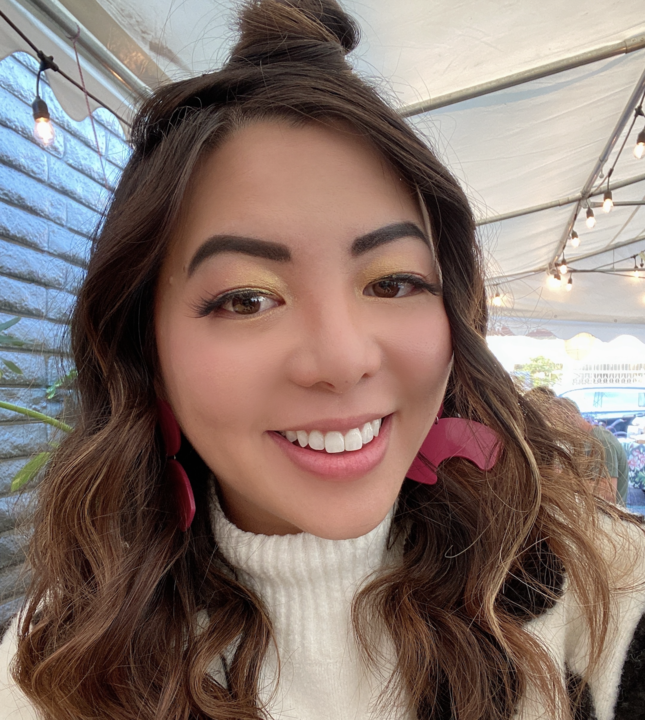
Cristina McComic
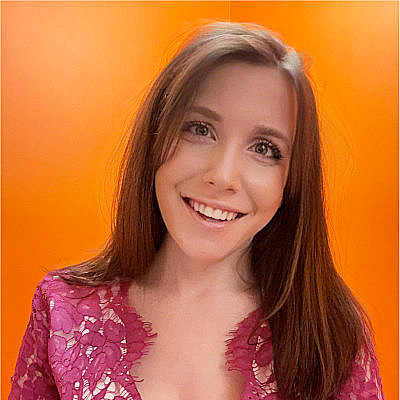
Sam Smitte
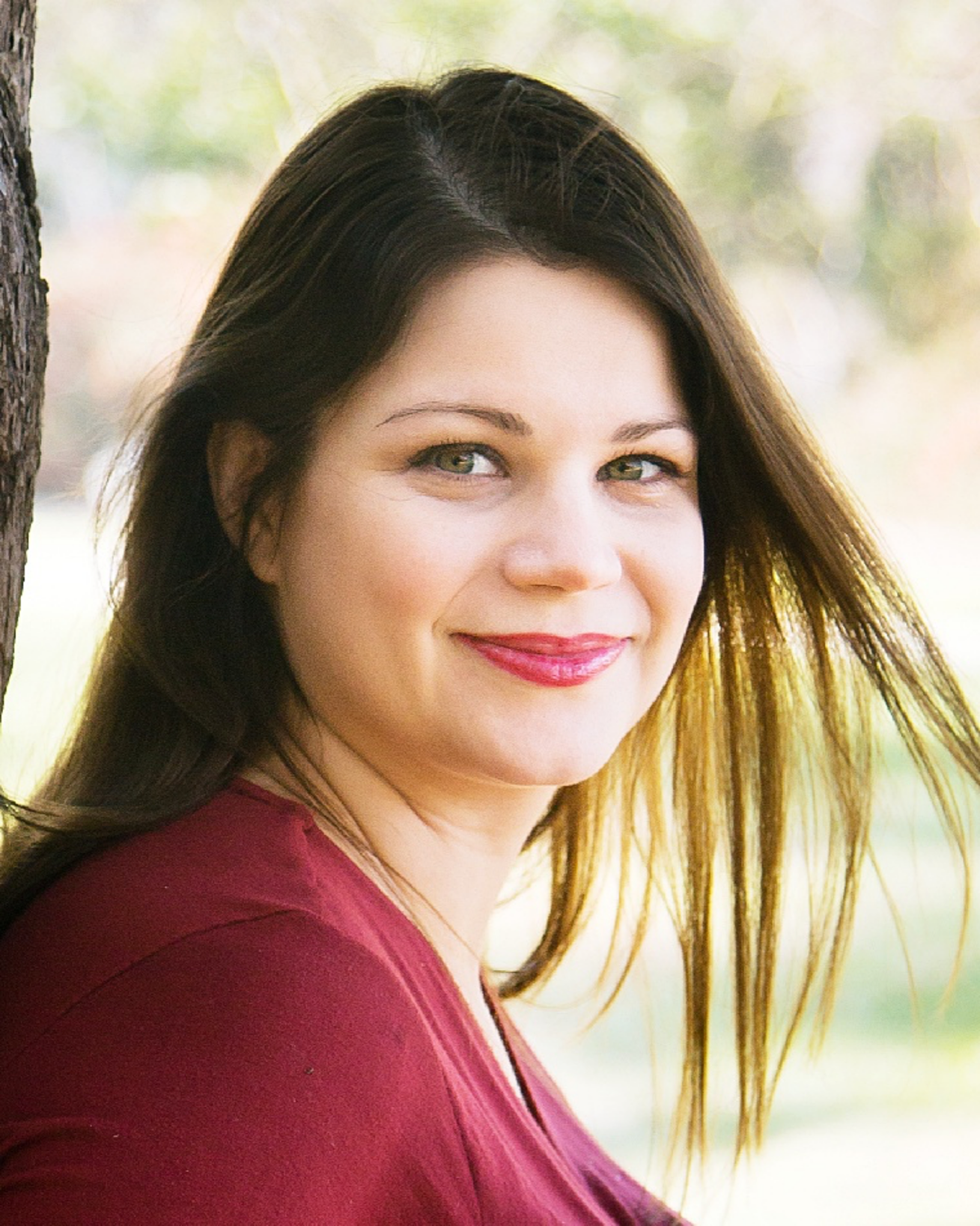
Amanda Downie
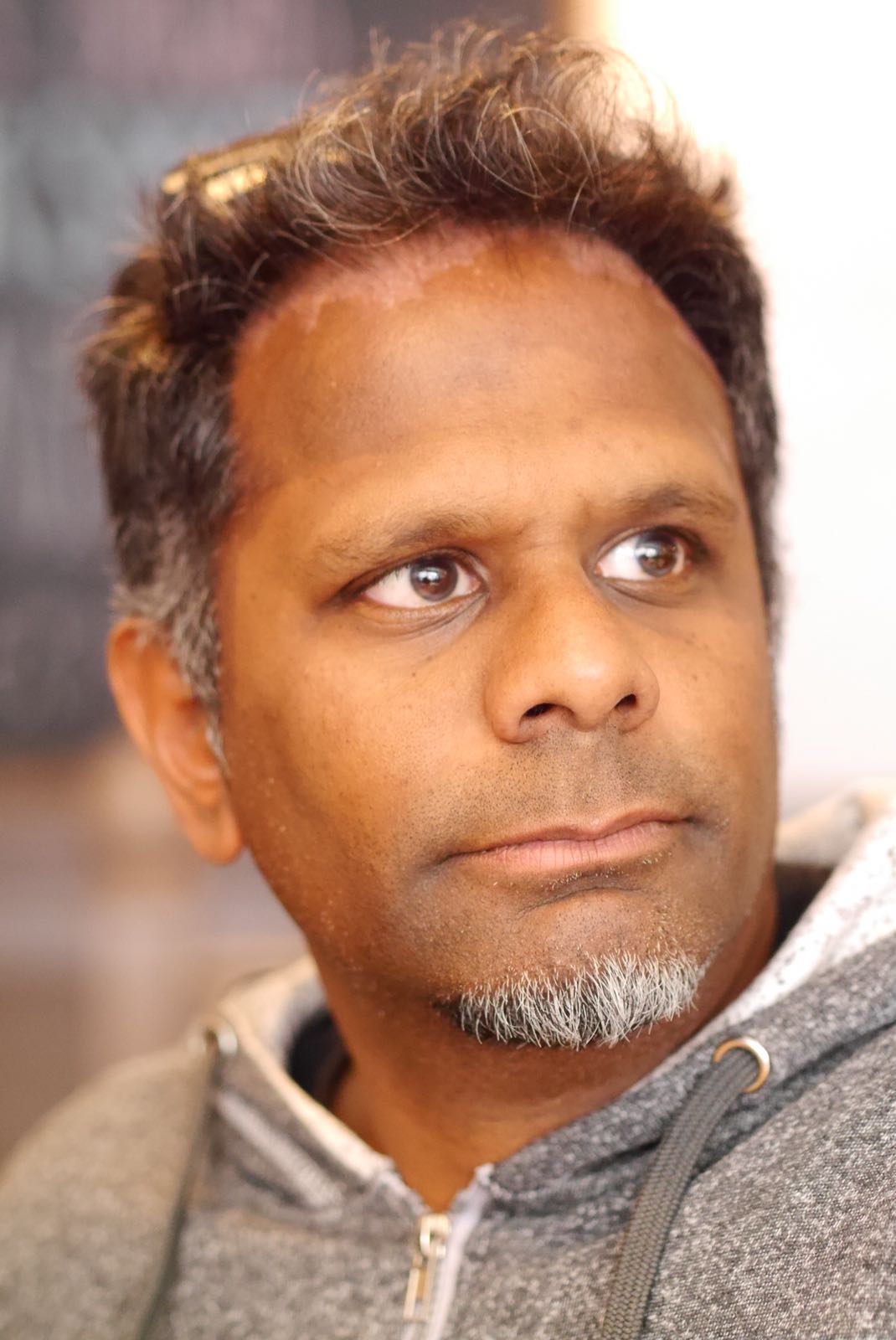
Daryl Pereira
Today's Guests
